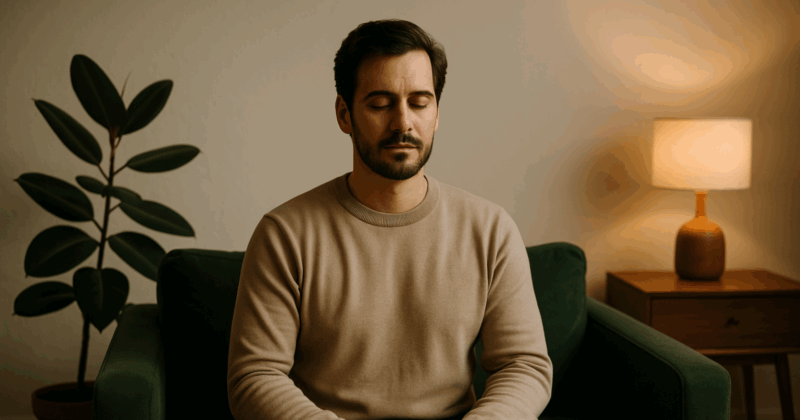We live in a world where “busy” has become a badge of honor. If you’re not rushing from one task to the next, it almost feels like you’re falling behind.
But here’s the thing: constantly living in fast-forward doesn’t make life more meaningful. It makes it more exhausting.
Slowing down isn’t about doing less for the sake of laziness. It’s about creating the mental space to actually enjoy your life. It’s about stepping off the treadmill of urgency and realizing that many of the things we stress over don’t really matter.
If you’ve been craving a calmer, less stressful life, it might not be about adding new routines—it might be about letting go of old ones. Here are 7 habits worth saying goodbye to if you want to master the art of slowing down.
1. Constant multitasking
You’ve probably heard that multitasking is a productivity superpower. But the truth? It’s more like productivity’s worst enemy.
Studies show that our brains aren’t wired to focus on multiple tasks at once. What we’re really doing is “task-switching”—jumping between things and draining mental energy in the process.
When you’re constantly switching tabs, checking emails, or half-listening while scrolling, you’re never fully present. The cost is more stress and less actual accomplishment.
Try single-tasking instead. Pick one thing, focus deeply, and finish it before moving on. You’ll get more done and feel calmer doing it.
2. Saying yes to everything
How often do you agree to something—even though your gut screams “no”—just to avoid disappointing someone?
Saying yes out of guilt or fear of missing out is one of the fastest ways to overfill your schedule. It’s also one of the surest ways to burn out.
Slowing down requires boundaries. It’s not selfish to protect your time. In fact, it’s one of the most compassionate things you can do—because when you stop stretching yourself too thin, you show up better for the people and projects that really matter.
3. Treating busyness as a badge of honor
When someone asks how you’re doing, do you ever reflexively answer, “Busy”?
Somewhere along the way, we equated busyness with importance. But being busy doesn’t mean you’re living well—it just means you’re filling your days with activity.
Busyness is addictive because it feels productive, but often it’s just avoidance. Avoidance of silence. Avoidance of stillness. Avoidance of the uncomfortable truth that maybe slowing down forces us to face who we are without distractions.
Instead of chasing busyness, try chasing presence. Notice how different life feels when you value depth over speed.
4. Checking your phone first thing in the morning
Your morning sets the tone for your entire day. And yet, most of us start our mornings by diving headfirst into notifications, emails, and newsfeeds.
That instant stimulation spikes your stress hormones before you’ve even brushed your teeth. It tells your brain: “The world is urgent. You’re already behind.”
I’ve talked about this before, but creating a slower, intentional morning routine is one of the best ways to reclaim calm. Even five minutes of quiet—stretching, journaling, or sipping tea without screens—can completely shift your mindset.
5. Measuring your life against everyone else’s
Comparison is one of the sneakiest thieves of peace. Social media makes it worse—you see everyone’s highlight reels, and suddenly your own life feels lacking.
When you’re constantly measuring yourself against others, you’ll always find a way to come up short. That comparison-driven stress keeps you rushing toward achievements that don’t even align with what you really want.
Slowing down means focusing inward. What matters to you? What pace of life feels good for you? When you stop competing, you start actually living.
6. Believing every moment has to be “productive”
One of the biggest traps of modern life is equating our value with output. If you’re not producing, you’re wasting time—right?
Wrong. Rest isn’t wasted time. Play isn’t wasted time. Sitting quietly with your thoughts isn’t wasted time.
A calmer life often comes when you give yourself permission to just be.
7. Ignoring your body’s signals
Stress doesn’t just live in your head—it lives in your body. Tight shoulders, shallow breathing, fatigue, headaches—these are all signals that your body needs you to slow down.
But most of us push through, dosing up on caffeine and telling ourselves we’ll rest “later.” Later rarely comes.
Slowing down starts with tuning in. Notice how your body feels throughout the day. Stretch. Breathe. Take breaks before you’re depleted. Your body is smarter than your calendar—listen to it.
Final words
The art of slowing down isn’t about abandoning ambition or checking out of life. It’s about recognizing that speed doesn’t equal meaning.
When you let go of habits like multitasking, overcommitting, and treating busyness as a status symbol, you create space for calm. And in that calm, you’ll find clarity, presence, and maybe even joy.
So the question is: which of these habits are you ready to say goodbye to first?
- People who still look young in their 60s and beyond usually adopt these 8 daily habits - September 22, 2025
- Psychology says people who are naturally kind but have no close friends often display these 7 traits - September 19, 2025
- People who stay joyful in their 70s almost always share these 7 traits - September 18, 2025
